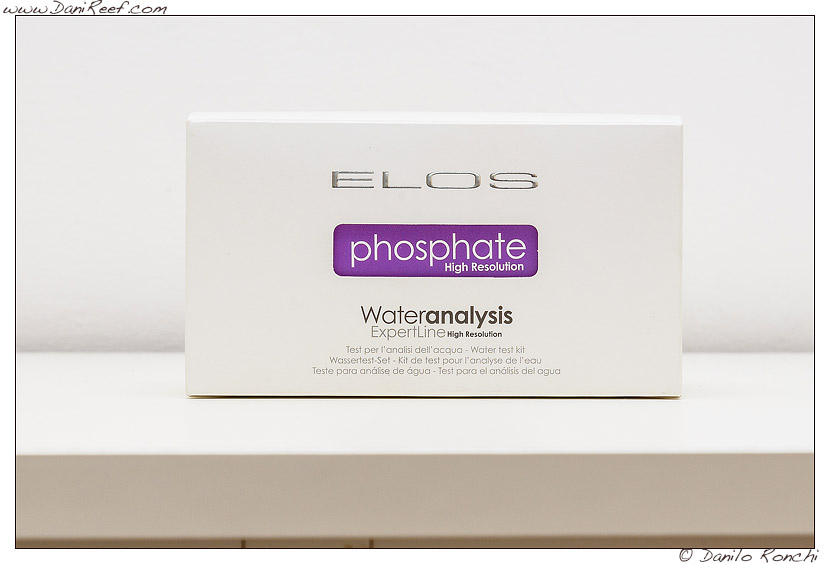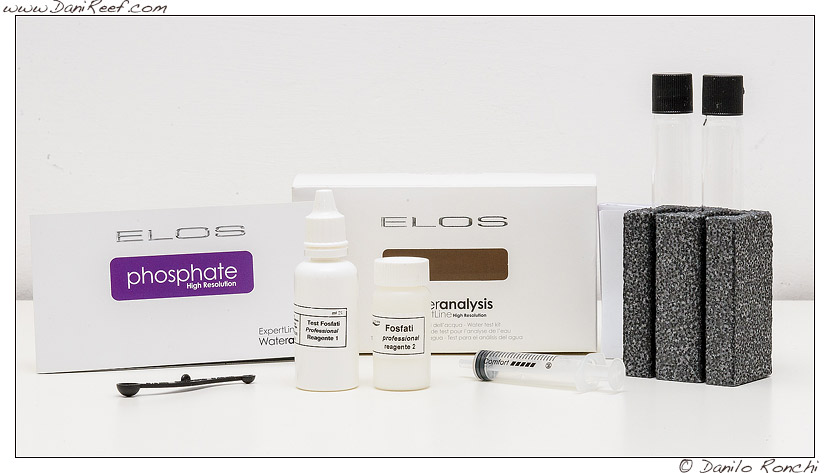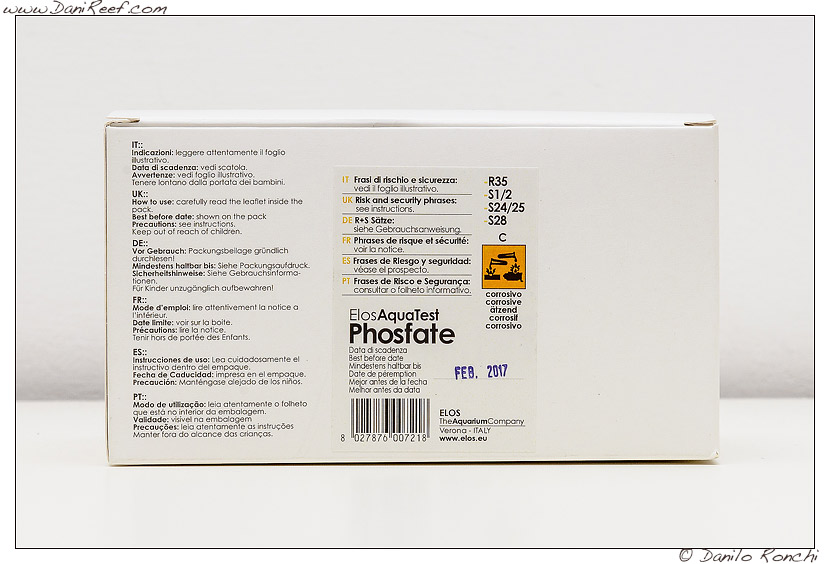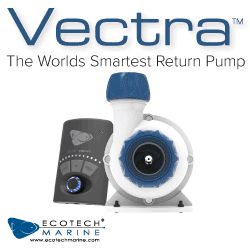
After reviewing the test kits for dKh, Magnesium, Calcium and Nitrates , today I present to you one of the most important aquarium tests – phosphate. Or, more accurately, the Elos PhosphateHR water test kit.
The test comes in a large box, and contains the instructions, the leaflet, two large glass vials with screw caps, two flasks containing reagents (one liquid reagent and one powder), a syringe, and the classic Elos spoon.
The reagents and the glass vials are safely packaged in a secure plastic bag.
The test can detect phosphate levels from 0-0.43 mg/L, making it more useful for marine tanks than fresh water, which will generally have higher phosphate levels than the test is designed for. It is important to maintain very low levels of phosphates when keeping corals – as close to zero as possible, and certainly less than 0.1 for good growth. Levels over 0.3 will lead to calcification, and above that, coral death.
The test is very simple and easy.
Fill the two vials with 200 ml. of aquarium water, put the first aside to serve as a reference.
In the second vial, add 10 drops of liquid reagent from the bottle labeled Reagent 1.
Using the enclosed measuring spoon, measure and add 0.4 ml. of the Reagent 2 powder.
Close the tube securely and shake gently for about 3 minutes.
The results are read from above; hold the test vial over the reference board and compare the color in the vial with reagent and the color in the clean water vial to the colors on the card.
Below is the downloadable reference card.
I really like the PhosphateHR water test, it and the dKH tests are my favorites (read our review); this test has proven to be extremely accurate, easy to use, and has great repeat-ability. The color scale is practically perfect and the resolution is incredibly high.
The “dropper” of the liquid reagent is very accurate, and drops are almost always identical to themselves. Elos claims it has produced a calibrated dropper, and although I can’t verify that, the results are incredibly good. Of course, it’s possible that a drop can become “impregnated” with air, but in my experience, the probability of that happening is about one drop per box. I recommend giving the reagent bottle a quick shake to lessen the chance of air bubbles.
Conclusions:
The test is expensive, 39,04 euro (about $44 USD). But taking into account its resolution, ease of use and accuracy, I think the price is fair.
I use the Elos PhosphateHR water test kit on my own aquarium. Considering the quality of the packaging, the calibrated “dropper”, and the other advantages of this test, I recommend this water test as one of the best phosphate tests on the market.














I’m considering this product. Roughly how many tests does one kit give?